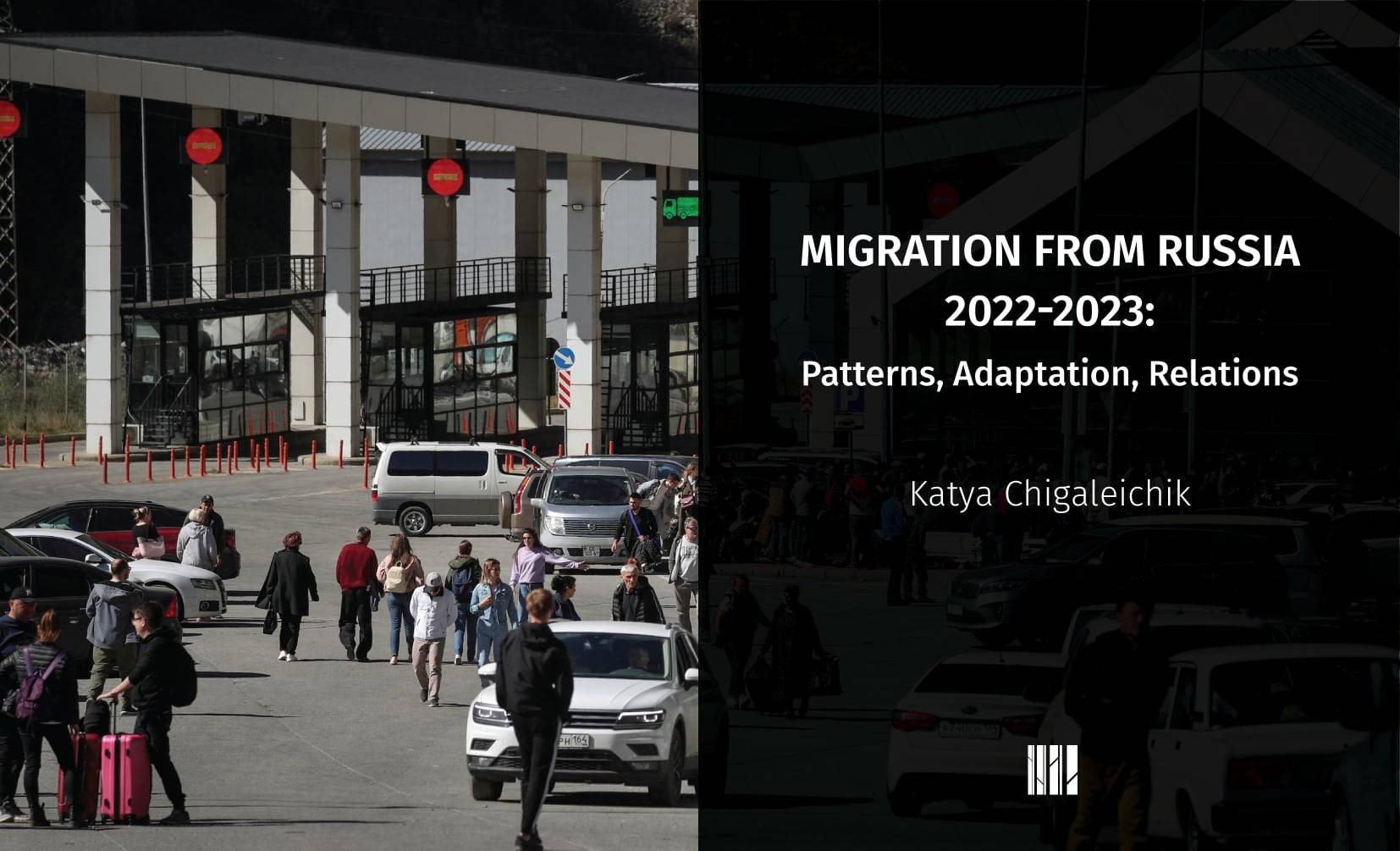საერთო ცხელი ხაზი +995 577 07 05 63


Introduction
Georgia and Armenia remained as countries of origins over the course of several decades as hundreds of thousand left post Soviet republics due to armed conflicts, natural disasters, and economic crises. The majority of these migrants have experienced seasonal labour migration, mostly in Russia.[1]
Mass exodus of Russians following the commencement of the full-fledged war in Ukraine sent shockwaves among not only host communities but for Russian migrants as well. Even those who were not ‘beyond politics’ in Russia, did not anticipate the full-scale invasion in Ukraine. Interviews with Russian migrants recorded in the spring 2022 are dominated by anger, fear, depression, and bewilderment. The majority of migrants reside in Tbilisi and Batumi. Over the past few years Georgia has attracted droves of political migrants from Russia and Belarus.[2]
Many researchers have tried to ascertain a scale of this migration wave. However, to accurately calculate number of migrants arriving in certain interval is an extremely arduous task: during the first year of migration, majority of migrants would cross to Armenia and return again while many left for Russia several times and returned back. There have been numerous individual trajectories including seeking repatriation through respective procedures in Israel and obtaining EU or USA visas. A high degree of mobility also accounts for difficulties in not only estimating the number of those migrants who reside in Georgia on a permanent basis, but also in ascertaining migration flow between Georgia and other countries. Statistical methods are rendered ineffective by such a high rate of mobility as well as by impossibility to draw a line between tourist and migration flows.
According to the information provided by the Ministry of Internal Affairs of Georgia, as of 3 October 2022, there were up to 112 thousand citizens of Russia staying in Georgia.[3] This is a huge number for a host country with the population of just 3.7 million. According to other sources, up to 60.000 Russians arrived and stayed in Georgia.[4] Most researchers agree that the Russian migration in Georgia reached its peak in late 2022 and early 2023 with Russian emigres totalling up to 100.000 individuals.[5] The peak was then followed by outflow. It seems that tens of thousands of Russians left Georgia. This is something that is felt by many migrants. Even though some groups of Russians arrive in Georgia from Russia, Kazakhstan, Turkey and other countries, some have been leaving for Russia, Europe, the USA, South-East Asia, or Israel.[6] The immigration of Russians from Georgia is likely to continue for some time, however, considerable part will remain in Georgia, nevertheless.
[1] Mataradze, Teona, and Florian Mühlfried. "Leaving and Being left Behind: labor Migration in Georgia. "Caucasus Analytical Digest 4(2009):2-4. Badurashvili, Irina. Circular migration in Georgia (2012).
[2] We use the term ‘migrants’ in order to avoid overburdening the status of the respondents and concentrating on just one type of migration. In response to direct questions, Russian respondents use ‘migrants’, ‘expats’, ‘relocants’. However, in general, particularly in 2022, they preferred to not use any term in reference to themselves. „generally, to be honest, I am more inclined to think that it feels like sticking a label to someone. I am a person who… does not want to live in the county which has become what it is now. I am someone who has left, someone who is against’ (male,26) This stems from the refusal to accept one’s status and is rooted in uncertainties when it comes to plans. The belief that they have left Russia forever or for a long time is directly linked to the readiness to call themselves ‘migrant’/’immigrant’. The terms ‘relocants’ and ‘expats’ point out to one’s discretion while changing a place of residence, its temporary and fluid nature, as well as certain privileges that the person enjoys (the freedom to choose a place of residence at one’s free will rather than being compelled to do so by coercion or under duress). Initially, the word ‘relocation’ had been used in its narrow meaning, to denote relocation of business or moving around with an employer. However, the word soon acquired a broader meaning and effectively moved closer to ‘migration’. Also, one can come across such mocking terms as «уезжанты» (those who left), «понаехи» (aliens) etc in chats and everyday communication between Russian nationals. Such an irony is an instrument to cope with migration stress as well as negative attitudes towards one’s own self.
[3] Ministry of Internal Affairs of Georgia 03.10.2022 https://info.parliament.ge/file/1/MpQuestionContent/19959
[4] «800 тысяч россиян могли покинуть страну в 2022 году »Если быть точным, 27.02.2023 Ирина Ширманова https://tochno.st/materials/rossiyan-mogli-pokinut-stranu-v-2022-godu
[5] «Russian émigrés in Georgia »СRRC-Georgia, 05.09.2023 GiviSigaladze https://crrc.ge/uploads/tinymce/documents/NED/NED%20Russians%20report%20v3_ENG.pdf
[6] «After A Frosty Reception, Tbilisi's Wartime Russians Are Beginning To Leave »Radio Free Europe, 21.01.2024 Joshua Kucera https://www.rferl.org/a/georgia-russians-fleeing-war-leaving-/32784835.html#
The website accessibility instruction